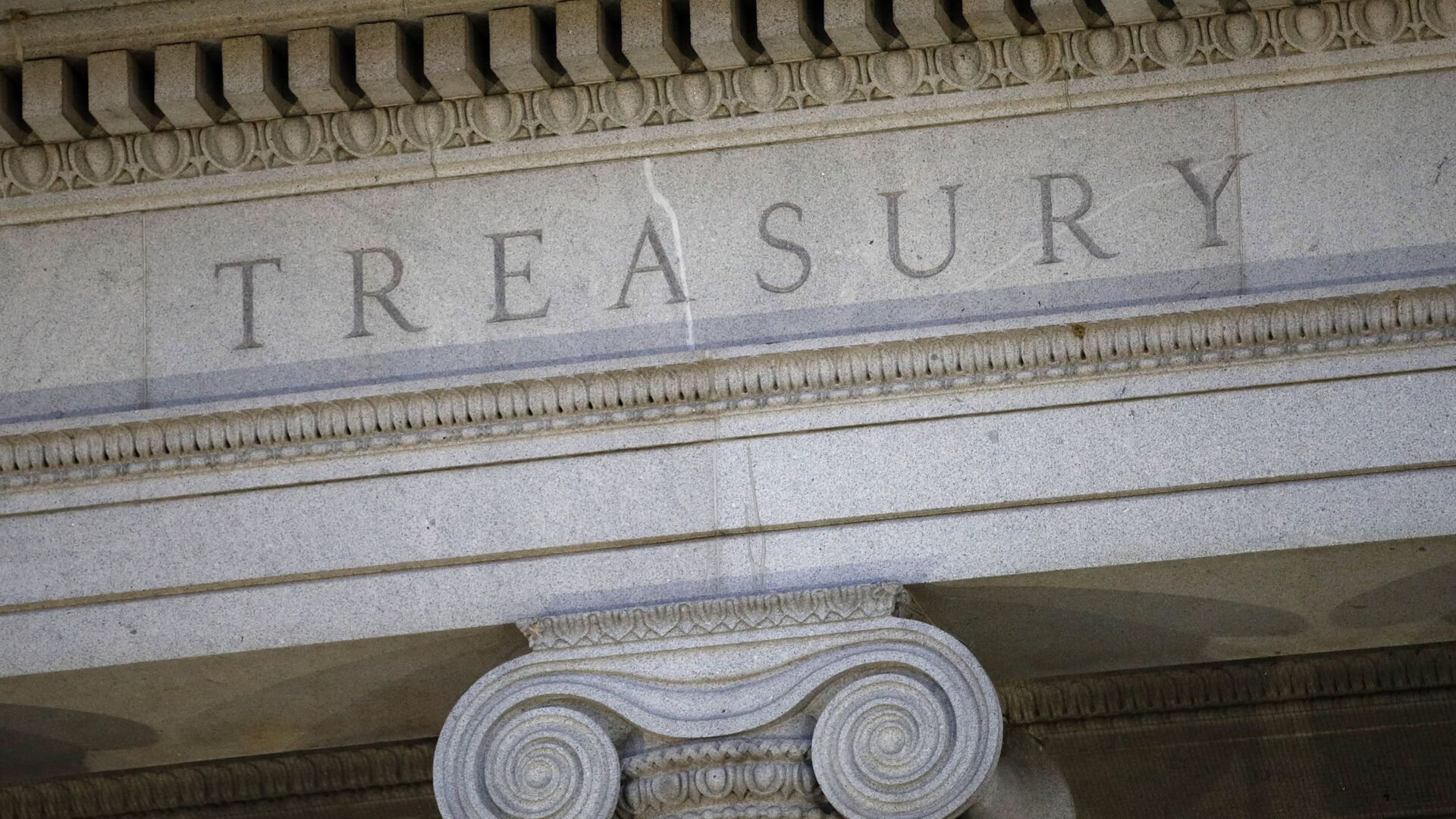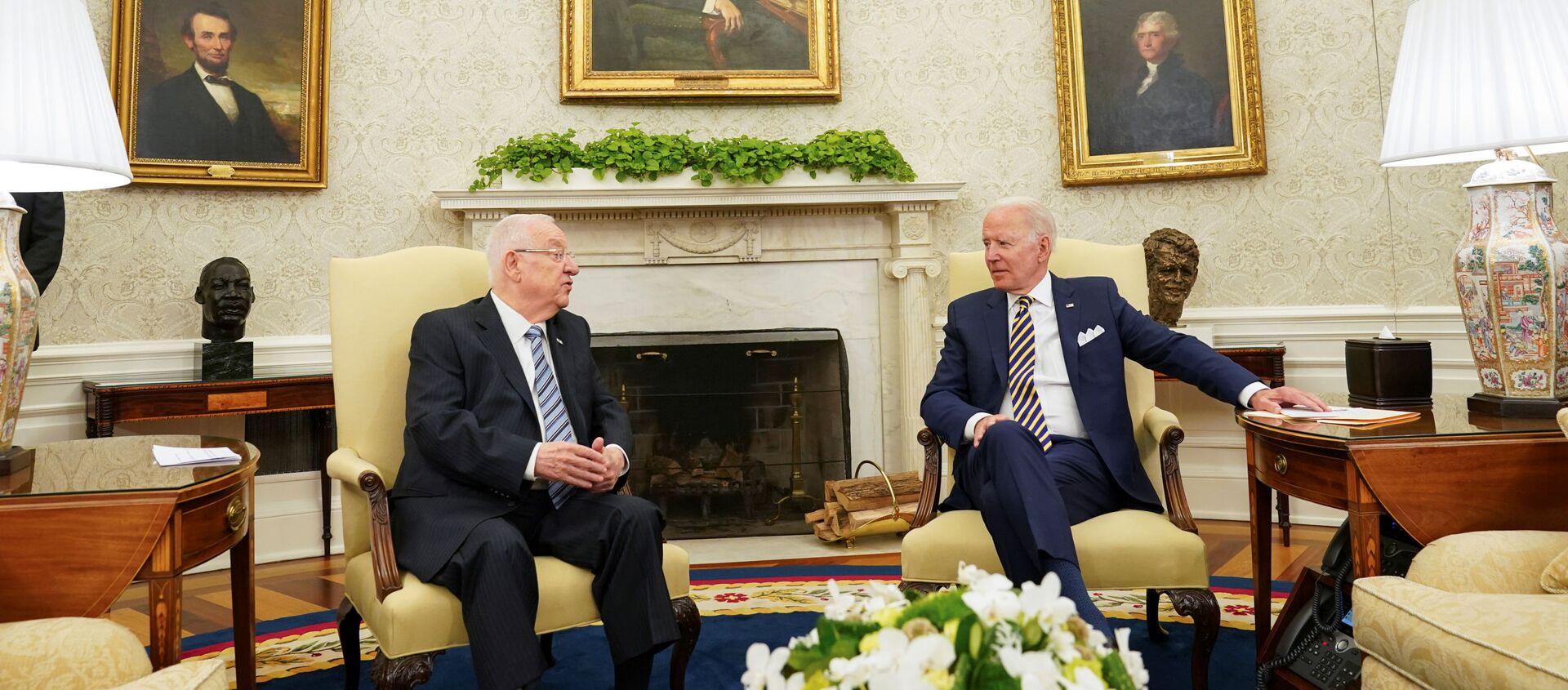https://sputnikglobe.com/20210702/us-treasury-removes-three-iranians-from-sanctions-list-1083293482.html
US Treasury Removes Three Iranians From Sanctions List
US Treasury Removes Three Iranians From Sanctions List
Sputnik International
The United States reinstated crushing banking and energy sanctions against Tehran after unilaterally withdrawing from the Iran nuclear deal in 2018. The Biden... 02.07.2021, Sputnik International
2021-07-02T14:55+0000
2021-07-02T14:55+0000
2021-07-02T16:08+0000
world
newsfeed
https://cdn1.img.sputnikglobe.com/img/07e5/04/1d/1082765027_0:160:3073:1888_1920x0_80_0_0_754bb15463929fbd616a46d538979347.jpg
The US Treasury Department removed three Iranian nationals from its sanctions blacklist on Friday, while stressing that their removal was not an indication of any change in overall US sanctions policy toward the Islamic Republic.The delisted individuals include Behzad Daniel Ferdows, Mehrzad Manuel Ferdows, and Mohammed Reza Dezfulian, with all three individuals placed on a list of "non-proliferation designations" over suspected "conventional arms activities" in September 2020. All three were subject to secondary sanctions – a type of restriction the US government traditionally threatens to use against governments, businesses, and other entities which do business with the intended target of sanctions, in this case Iran.Iran-US talks on a possible return to the JCPOA by Washington continue, with early hopes for a quick breakthrough in the early days after President Joe Biden's inauguration giving way to disagreements about which side should make concessions first. Washington is demanding that Tehran dramatically reduce its uranium enrichment and stockpiling activities, in accordance with the nuclear deal's terms. Iran, meanwhile, says the US side must remove its crushing and illegal sanctions against the Middle Eastern country as a demonstration of good faith.Last week, Iranian negotiators announced that participants at the Vienna talks had agreed in principle to the need to lift over 1,000 US sanctions levied against Tehran during the Trump administration.The negotiations have been complicated by the position of the US's Israeli allies, who have threatened to carry out military strikes against Iran and its alleged nuclear programme if the JCPOA is reactivated. On Monday, Biden assured Israeli President Reuven Rivlin that the United States would not allow Iran to "get a nuclear weapon" on his watch.Iran has repeatedly denied any intention to pursue nuclear weapons, and has asked the international community why its peaceful nuclear activities have been put under so much scrutiny while Israel's alleged nuclear weapons programme has remained undiscussed and uncensured.
https://sputnikglobe.com/20210629/iran-will-never-get-nukes-on-my-watch-biden-says-as-he-vows-ironclad-commitment-to-israel-1083264257.html
Sputnik International
feedback@sputniknews.com
+74956456601
MIA „Rosiya Segodnya“
2021
News
en_EN
Sputnik International
feedback@sputniknews.com
+74956456601
MIA „Rosiya Segodnya“
Sputnik International
feedback@sputniknews.com
+74956456601
MIA „Rosiya Segodnya“
newsfeed
US Treasury Removes Three Iranians From Sanctions List
14:55 GMT 02.07.2021 (Updated: 16:08 GMT 02.07.2021) The United States reinstated crushing banking and energy sanctions against Tehran after unilaterally withdrawing from the Iran nuclear deal in 2018. The Biden administration has publicly stated its intent to return to the agreement, but negotiations on the matter have yet to reach a breakthrough.
The US Treasury Department
removed three Iranian nationals from its sanctions blacklist on Friday, while stressing that their removal was not an indication of any change in overall US sanctions policy toward the Islamic Republic.
A Treasury spokesperson also emphasised that the removals had nothing to do with the ongoing negotiations in Vienna between the US and the remaining signatories to the Joint Comprehensive Plan of Action nuclear deal.
The delisted individuals include Behzad Daniel Ferdows, Mehrzad Manuel Ferdows, and Mohammed Reza Dezfulian, with all three individuals
placed on a list of "non-proliferation designations" over suspected "conventional arms activities" in September 2020. All three were subject to secondary sanctions – a type of restriction the US government traditionally threatens to use against governments, businesses, and other entities which do business with the intended target of sanctions, in this case Iran.
Iran-US talks on a possible return to the JCPOA by Washington continue, with early hopes for a quick breakthrough in the early days after President Joe Biden's inauguration giving way to disagreements about which side should make concessions first. Washington is demanding that Tehran dramatically reduce its uranium enrichment and stockpiling activities, in accordance with the nuclear deal's terms. Iran, meanwhile, says the US side must remove its crushing and illegal sanctions against the Middle Eastern country as a demonstration of good faith.
Last week, Iranian negotiators announced that participants at the Vienna talks had agreed in principle to the need to lift over 1,000 US sanctions levied against Tehran during the Trump administration.
The negotiations have been complicated by the position of the US's Israeli allies, who have threatened to carry out military strikes against Iran and its alleged nuclear programme if the JCPOA is reactivated. On Monday, Biden assured Israeli President Reuven Rivlin that the United States would not allow Iran to "get a nuclear weapon" on his watch.
Iran has repeatedly denied any intention to pursue nuclear weapons, and
has asked the international community why its peaceful nuclear activities have been put under so much scrutiny while Israel's alleged nuclear weapons programme has remained undiscussed and uncensured.





